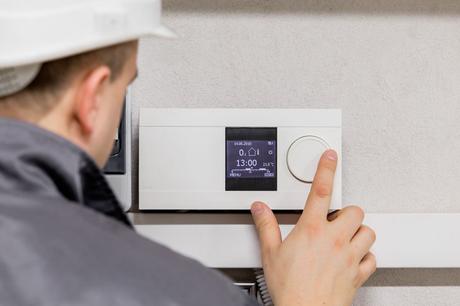
If you're buying or selling a home, you may have heard of a residential service contract. Sellers advertise them, and buyers ask about them.
But what exactly are residential service contracts? And why are they important?
Let us clear up the confusion. We'll explain what a residential service contract is, and what it means for your home. We'll also give you some pointers on what to look for.
Let's get started!
Click For Article Contents:
What is a Residential Service Contract?
Residential service contracts are sometimes called home service contracts or home warranties. They're a supplemental insurance policy that covers things like appliances plumbing and electrical systems. Most of these policies last for one year, although some insurers offer longer plans.
Home buyers like them because they offer peace of mind. If you buy a house with a home warranty, you know you won't have to worry about replacing your refrigerator or hot water heater, at least for the first year. Depending on the plan, you may be protected from plumbing mishaps or bad wiring.
For example, if you buy a house and the oven fails, it can be a major expense. That's particularly true if you stretched yourself to the financial limit just to make a down payment. If the house came with a residential service contract, you can simply call the contract provider and schedule someone to come repair or replace your oven.
Sellers like to offer them for similar reasons. If you're trying to sell your house quickly, buying a residential service contract is a relatively inexpensive way to attract more buyers.
The cost of a home warranty will vary from insurer to insurer, and depending on what kind of coverage you purchase. Basic plans can be as cheap as $55 for one appliance, while premium plans can come in over $1000.
Most home warranties will cost between $300 and $900 a year, but the only way to find out your rate is to ask an insurer.
What Do They Cover?

Your exact coverage will depend on your policy, so make sure to check with your insurer if you have any questions. That said, there are some general rules. Home service contracts can cover appliances, systems, or both.
Appliance plans cover:
- Refrigerators
- water heaters
- dishwashers
- stoves
- and other major home appliances.
Systems coverage protects your:
Combination plans will cover: both appliances and systems.
Most residential service contracts will cover your appliances or systems regardless of how old they are, as long as they're in working order.
What Don't They Cover?
Again, this will depend on your insurer and the exact plan you've purchased, so make sure to verify what's covered and what isn't. There are some things that are never covered, though.
- Foundations are covered by your homeowner's insurance, not by a home warranty.
- Structural problems are the same way. Contact your homeowner's insurance provider.
- Misuse or intentional damage. If your three-year-old leaves a plastic dinosaur on the stove and it melts all over the element, that won't be covered.
Because your mortgage will require you to take out homeowners insurance, you should be covered for structural problems and foundations regardless. Keep in mind, there are major differences between homeowners insurance and a home warranty.
How Do They Work?
Like most insurance policies, home warranties sometimes have a deductible, or a minimum payment. Most of the time, this takes the form of a call-out fee, which is a small amount of money (usually around $100), that you pay for someone to come to your home. Before you sign for your policy, make sure you know what the call-out fee is, and if there's any additional deductible.
Also like most insurance policies, it can sometimes make sense to make repairs yourself. If your car blows a tire, for example, you're not going to pay a $500 insurance deductible when you could replace the tire for far less. Similarly, if your dishwasher stops working because a hose clamp broke off, you'll be better off replacing a $5 hose clamp than paying a call-out fee to have it fixed.
What Are My Options?
Your options will depend on your insurer. Generally, you'll get to choose whether to cover just your appliances, just your home systems, or a combination of them. Some insurers offer different tiers of coverage, from major appliances to all appliances.
Obviously, you'll also have a choice of different insurance providers. Since insurers typically contract their service calls to a network of local contractors, you'll want to make sure they have contractors near you. If you live in a major metropolitan area, this shouldn't be difficult. If you live in a rural area, it's a good idea to ask who your insurer's local contractor is.
What To Watch Out For

Of course, there are some potential pitfalls when buying a residential service contract.
- Make sure you have the right kind of plan to cover anything you can't afford to fix on your own.
- Keep an eye on deductibles and call-out fees. Make sure it's something you're willing to pay, but also keep in mind that these are usually far cheaper than paying for repairs out of pocket.
- Ask about the coverage limit. Home warranties will only pay up to a certain amount in a year, so you may run out of coverage if a catastrophic problem knocks out multiple appliances.
- Look out for unethical home sellers. Most people are honest, but there are some people who will misrepresent what their home warranty covers. Even well-meaning sellers may have a poor understanding of their coverage, and accidentally give you bad information.
When you're buying a house with home service contract, ask to see the paperwork. An honest seller will be happy to show you exactly what you're buying.
Wrapping Up
At the end of the day, the only way to find out what your options are is to contact an insurer. These can vary based on how old your house is, how many appliances you have, and where you live. The only way to know for sure is to ask.
We hope this guide has been helpful. If there's something we didn't cover, or if you have other questions, let us know in the comments!
Related posts


